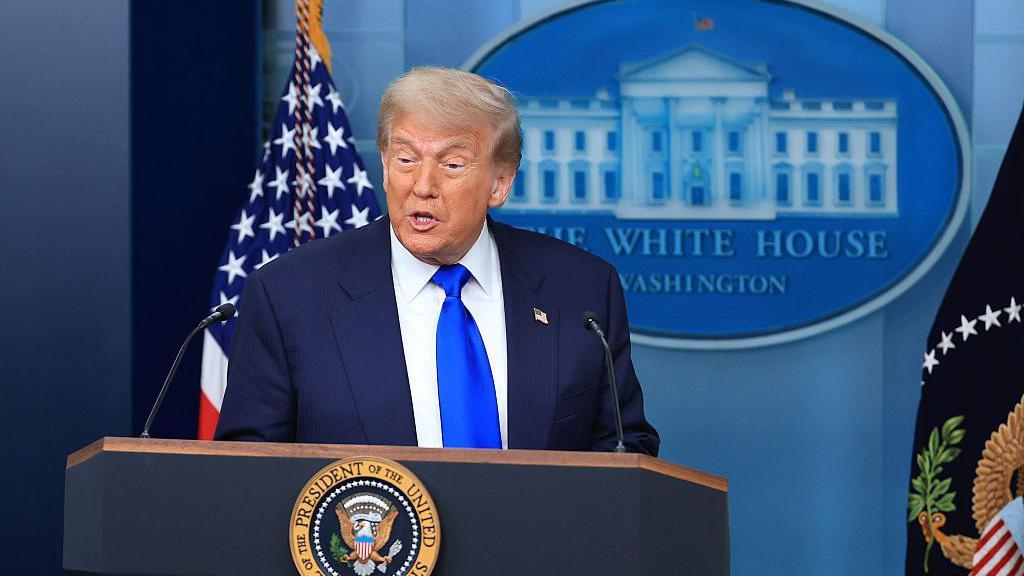“`html
The Supreme Court has agreed to hear arguments regarding the legality of the Trump administration’s global tariffs.
On Tuesday, the court announced it would review decisions from lower courts, which had previously determined that the former president lacked the legal authority to enact the tariffs implemented under an emergency economic powers act.
The justices have scheduled arguments in the case for the first week of November, indicating an expedited review process.
This case represents the most significant test of Donald Trump’s presidential authority and his signature economic policy, potentially requiring the U.S. to refund billions of dollars in collected tariffs.
While the Supreme Court’s conservative majority has historically shown a willingness to temporarily reinstate Trump’s policies and grant emergency requests, this case will be the court’s first substantive assessment of the legal foundation for one of his administration’s most expansive policies.
Trump invoked the International Emergency Economic Powers Act (IEEPA) to impose levies ranging from 10% to 50% on goods from numerous trading partners, including China, Mexico, and Canada.
These tariffs have remained in effect throughout the litigation, despite a federal appeals court ruling last month that Trump exceeded his authority. The court affirmed that the power to impose taxes and tariffs remains vested in Congress.
Trump criticized the appeals court’s decision on Truth Social, stating, “If allowed to stand, this Decision would literally destroy the United States of America.”
The initial legal challenge to the tariffs was brought by a coalition of small businesses and a dozen states, arguing that Trump’s use of IEEPA to impose the tariffs was unlawful.
The 1977 law permits a president to utilize various economic levers “to deal with any unusual and extraordinary threat, which has its source in whole or substantial part outside the United States, to the national security, foreign policy or economy.”
While Trump is not the first president to invoke IEEPA, he is the first to attempt to utilize the statute to impose broad-based tariffs. In introducing the global tariffs, Trump asserted that a trade imbalance posed a threat to U.S. national security, thereby constituting a national emergency.
Should the Supreme Court side with lower courts and determine that Trump’s IEEPA tariffs are unlawful, questions will arise regarding the potential repayment of billions of dollars collected through import taxes. Moreover, trade agreements already negotiated with countries like the UK and Japan, as well as those currently under negotiation, could face significant disruption, potentially engendering uncertainty.
Shortly after the Supreme Court’s announcement, Trump stated on Truth Social that his administration and India were “continuing negotiations” on trade.
“I feel certain that there will be no difficulty in coming to a successful conclusion,” he added.
The Trump administration possesses other mechanisms for imposing tariffs beyond IEEPA, although their scope is more limited.
The former president invoked a different law to enact tariffs on steel, aluminum, and automobiles. These levies are not directly impacted by the current Supreme Court case.
The US president says he feels “very badly” about the location of the attack and calls Qatar a “close ally”.
A Princeton student “tortured for many months” by Iraqi militia is now in the US embassy, President Trump says.
Port officials in Long Beach say no injuries have been reported, and the cause of the incident remains unclear.
The first minister wants the lucrative Scottish export to be exempt from US tariffs on goods from the UK.
The footage was shown during a Congressional hearing on “unidentified anomalous phenomena,” which in the air are commonly referred to as as UFOs.
“`

